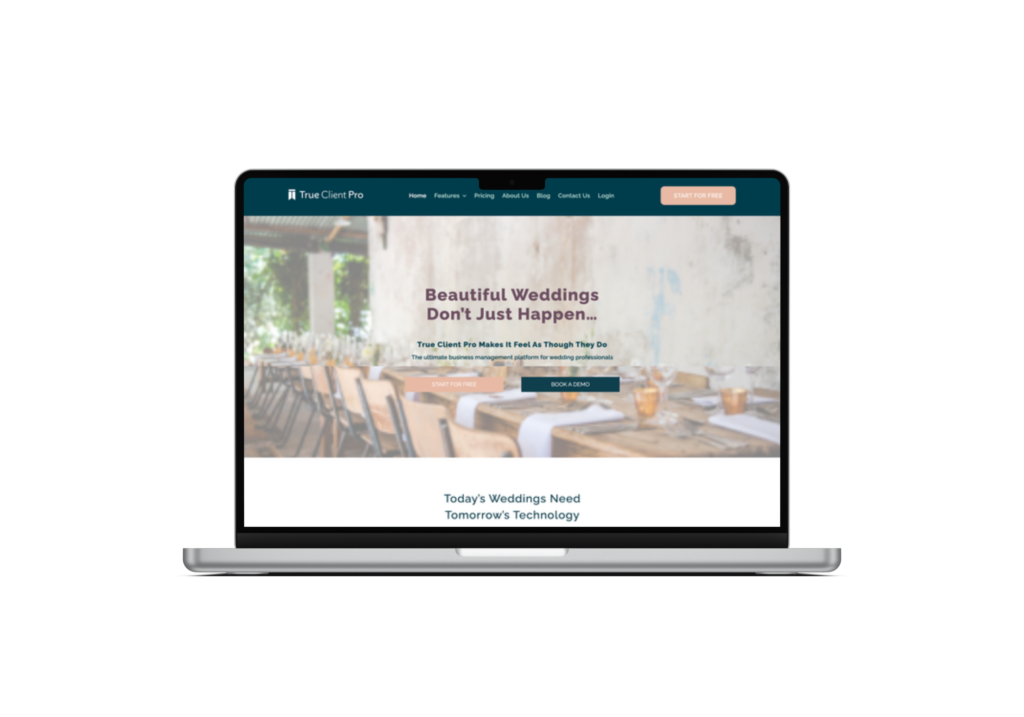So you’ve finally concluded that wedding CRM is a worthy investment. Hooray! I’m rooting for you on this. But what kind of CRM do you need? Because much like wedding events, it’s not just anything for everyone.
In this article, we’re gonna talk about YOUR BUSINESS. Buckle up because choosing the perfect wedding CRM may be a straightforward approach, but not without a periodical reality check. Today, we’re gonna do some company checks and balance before we dive into enhancing your workflow.
So don’t just invest in the most expensive CRM, thinking it could be the best. There are some things you need to consider.

5 Important Factors to Consider Before You Invest in a Wedding CRM
To determine which areas of your wedding business you want to optimize and enhance, you must first map your sales and marketing process before picking a CRM. Focus initially on the areas you’d like to address because your business’ requirements and problems go hand in hand.
Now let’s dig into the 5 most important factors to consider before investing in a wedding CRM. We start with your goals, resources, size of your team, expenses, and, lastly, your business’ current needs.
Your Business’ Longterm Goals
When choosing a wedding CRM, visualize your long-term goals regarding your business and how you see it a few years from now. Some options have promising features for your wedding planning resources. But the question is, would it stand the test of time?
Businesses should not outgrow the current software. Its complete functionalities must grow with you while providing the best services possible to help with your purpose.
Current Resources
CRM should work with your current resources and not the other way around. Instead of adding more resources to sync in with the new CRM, you should look for an option that fits with what you have.
Furthermore, your business should have the complete resources to manage the new system wedding CRMs have.
Remember that for every new system you will incorporate into your wedding planning business, you need someone to take over and manage everything—implementation, testing, and ensuring its usability.
Some wedding planners make mistakes in not anticipating the time and effort they should commit to the system, which results in less return.
That’s why you need to determine your long-term goals and department-specific needs for identifying the number of workforces to accomplish the workloads required for the potential CRM system.
Size of Your Team
CRMs come with several prices, depending on the features that cater to different sizes of a team. For example, when the purpose is to serve large businesses, they usually offer more advanced tools at higher prices.
However, when you are just starting as a wedding planner, you might also want to start small while visualizing the needs of the one who runs the business.
Instead of investing in high-end wedding CRM, you can consider affordable options with complete tools that will help you in the long run. Affordable doesn’t mean cheap. So, you must look for CRM with essential tools at a reasonable price.
Your Current Business’ Expenses
Of course, money is one of the factors that run a business. Without a budget, it’s impossible to implement new systems or tools. Before deciding on your wedding CRM, you must consider your current business’ expenses first.
When incorporating a CRM, you are paying for the application and the entire services of the system. You have to create a business budget before diving into several expenses.
Although CRM is a great start for your wedding planning services, you still need to choose the right one that fits your long-term goals.
On top of that, you must consider other fees associated with the CRMs you keep an eye on. These include:
Monthly subscription fees
You have to ask yourself, “Is my revenue enough to cover the monthly subscription fees?” But also keep in mind that wedding CRM is a great investment.
However, being realistic and planning ahead of time can save you from unnecessary additional fees in the future. Compute your monthly revenue and the monthly subscription fees for a specific CRM.
If you are just starting, think about your potential monthly profit, and determine if the one you are considering is just right for the size of your business.
When choosing CRM, ensure that it has all the features you need and you get what you paid for. An excellent CRM can be an asset, but a poor-designed CRM is a liability.
Third-party vendor fees
Most wedding CRMs have third-party vendors to supply the needs of their clients. So, before deciding, check the additional fees you need to pay aside from the monthly payment. You must record this in your accounting to keep track of the business expenses.
Along with the queries about the subscription, be prompt in asking about possible hidden fees and third-party vendor fees involved. These will help you decide better what type of CRM fits your current business.
Post-implementation support fees
From time to time, online software and applications change to keep pace with the consumer’s needs. As a consumer, you have to anticipate the possible post-implementation support fees in the future.
Generally, wedding CRMs provide free support for the first few months. However, a few months or a year after, there could be several post-implementation support fees.
When considering investing in a CRM, you must ensure that you have enough resources to pay for these additional fees. Nonetheless, investing in a good CRM can increase your revenue in the long run.
Functionality
Avoid CRMs with complicated command and navigation systems.
CRMs should lighten your load and not the opposite. The interface and UX designs must be simple and straightforward. After all, the very essence of subscribing to a CRM is workflow convenience.
That’s why it would be best to choose CRMs with unsophisticated command and navigation systems. As wedding professionals, you need software with complete functionalities that are easy to use.
Remember that the focus is not on you but on your clients. If you want to gain more customers, invest in a customer-focused application. Enabling interaction between you and the customers in an app can save both of your time. Furthermore, keep in mind that not every client is tech-savvy.
An application with smooth navigation can gain people’s attention regardless of age and skills.
For example, schedules for appointments are crucial for planning. Regarding that, CRM should have an appointment section where you can take notes and make a reminder. Without these features, it would be challenging to organize everything, and you might get lost throughout the planning.
Wedding planners are the foundation of every fairytale-like wedding event. You need a solid plan and system to make things happen. That’s why you must think twice before investing in a CRM.
Conclusion
In reality, a wedding CRM investment is a great start to your business. Wedding planning software can help you as a wedding professional to keep track of your plans and simplify everything from collaboration to appointment settings.
But proper planning helps you choose the best CRM that fits your business. Considering your goals, resources, size of your team, expenses, and your business’s current needs can help with your decisions.
The best wedding CRM should work with your long-term goals without breaking the bank. It should also keep pace with the business’s current needs without compromising the service quality and its identity.
Keep a list of CRMs, and create a checklist if they meet the five factors to consider before investing. Once you find the CRM that matches these five things, go ahead, for it will surely bring better revenue than you could imagine.




